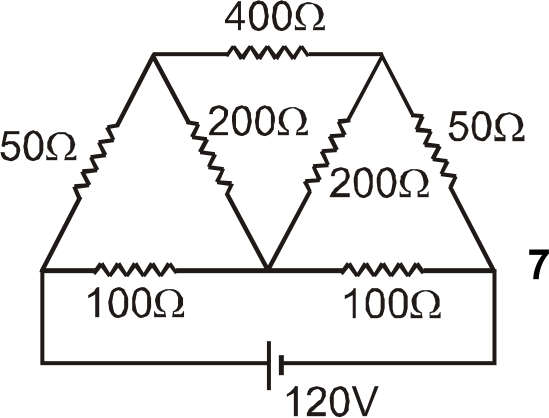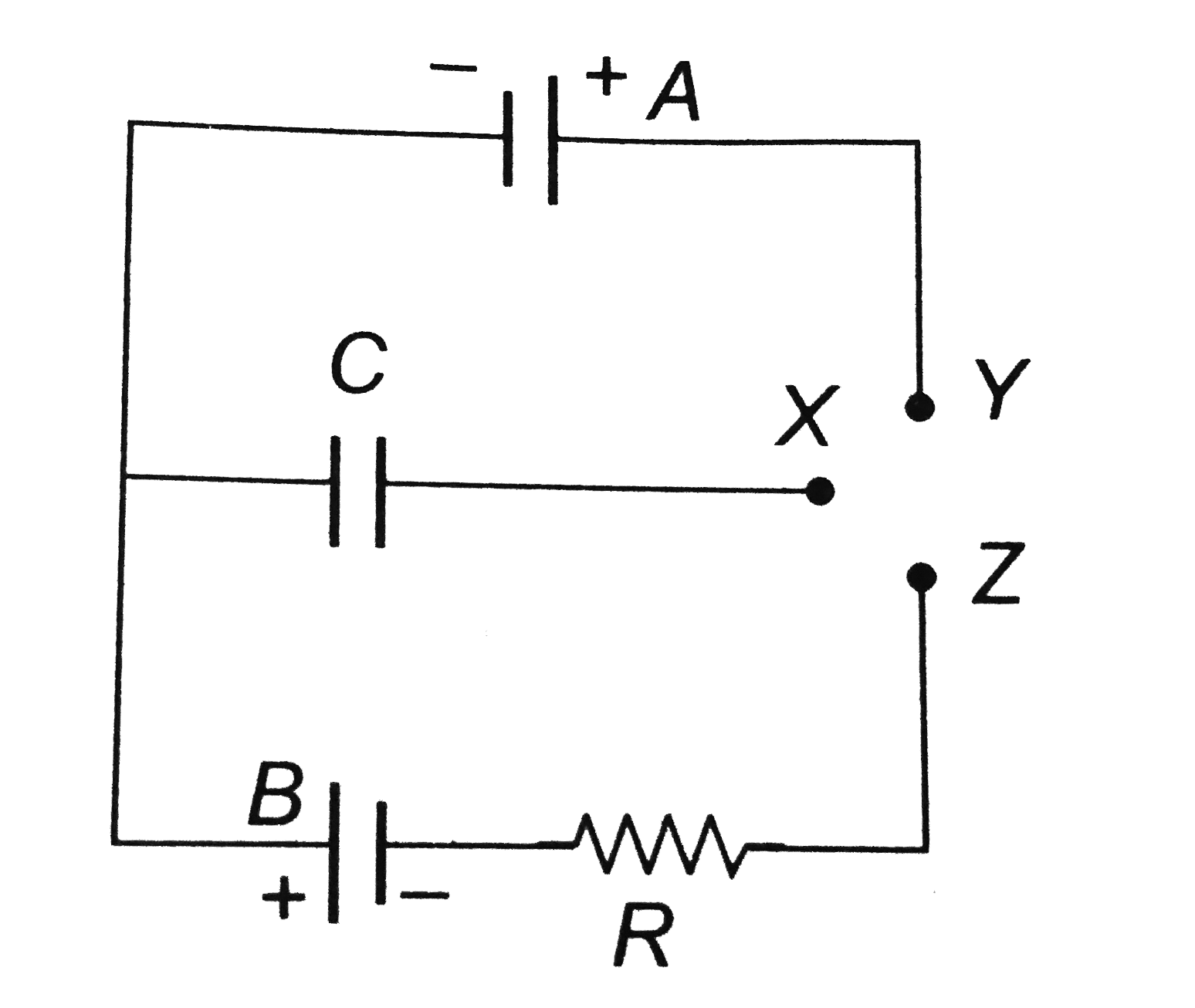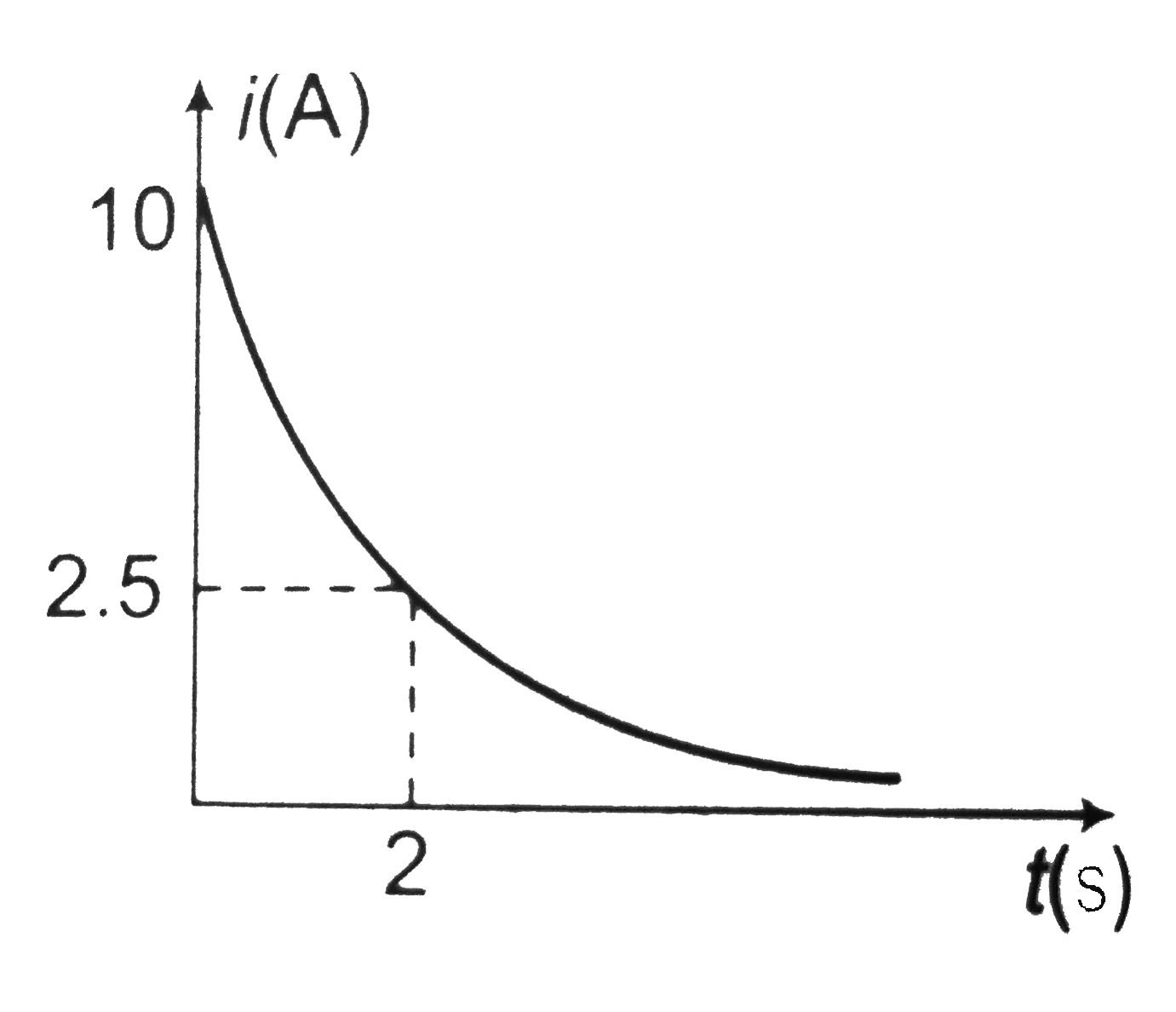A 4μF capacitor is charged to 400 volts and then its plates are joined through a resistor of resistance 1KΩ. The heat produced in the resistor is
0.16J
1.28J
0.64J
0.32J
The correct Answer is:D
To solve the problem of finding the heat produced in the resistor when a charged capacitor is connected across it, we can follow these steps:
Step 1: Identify the given values
- Capacitance (C) = 4 µF = 4×10−6 F
- Voltage (V) = 400 V
- Resistance (R) = 1 kΩ = 1000 Ω
Step 2: Calculate the energy stored in the capacitor
The energy (U) stored in a capacitor is given by the formula:
U=12CV2
Substituting the known values into the formula:
U=12×(4×10−6)×(400)2
Step 3: Calculate V2
First, calculate 4002:
4002=160000
Step 4: Substitute V2 back into the energy formula
Now substitute V2 back into the energy equation:
U=12×(4×10−6)×160000
Step 5: Calculate the energy
Now calculate the energy:
U=12×(4×10−6)×160000=2×10−6×160000=0.32 Joules
Step 6: Conclusion
The heat produced in the resistor when the capacitor discharges is equal to the energy stored in the capacitor, which is:
Heat produced=0.32 Joules
Final Answer:
The heat produced in the resistor is 0.32 Joules.
---
- Capacitance (C) = 4 µF = 4×10−6 F
- Voltage (V) = 400 V
- Resistance (R) = 1 kΩ = 1000 Ω
The energy (U) stored in a capacitor is given by the formula:
U=12CV2
Substituting the known values into the formula:
U=12×(4×10−6)×(400)2
First, calculate 4002:
4002=160000
Now substitute V2 back into the energy equation:
U=12×(4×10−6)×160000
Now calculate the energy:
U=12×(4×10−6)×160000=2×10−6×160000=0.32 Joules
The heat produced in the resistor when the capacitor discharges is equal to the energy stored in the capacitor, which is:
Heat produced=0.32 Joules
The heat produced in the resistor is 0.32 Joules.
Similar Questions
A capacitor having capacity of 2μF is charged to 200V and then the plates of the capacitor are connected to a resistance wire. The heat produced in joule will be
View SolutionA capacitor of capacitance C has charge Q. it is connected to an identical capacitor through a resistance. The heat produced in the resistance is
View SolutionThe value of escape speed from the surface of earth is
View SolutionAn alternating voltage V=140 sin 50 t is applied to a resistor of resistance 10 Ω. This voltage produces △H heat in the resistor in time △t. To produce the same heat in the same time, rquired DC current is
View SolutionAn alternating voltage V=140 sin 50 t is applied to a resistor of resistance 10 Ω. This voltage produces △H heat in the resistor in time △t. To produce the same heat in the same time, rquired DC current is
View SolutionElectric current through 400Ω resistor is :

View SolutionThe plates of a capacitor of capacitance 10(μ)F,charged to 60(μ)C,are joined together by a wire of resistance 10(Ω)at t=0.Find the charge on the capacitor in the circuit at (a)t=0,(b)t=30(mu)s,(c )t=120(mu)s and (d)t=1.0ms.
View SolutionIn the circuit shown the cells are ideal and of equal emfs, the capacitance of the capacitor is C and the resistance of the resistor is R. X is first joined to Yand then to Z. After a long time, the total heat produced in the resistor will be

View SolutionBy evaluating ∫i2Rdt,show that when a capacitor is charged by connecting it to a battery through a resistor,the energy dissipated as heat equals the energy stored in the capacitor.
View SolutionThe figure shows a graph of the current in a charging circuit of a capacitor through a resistor of resistance 10Ω.

View Solution